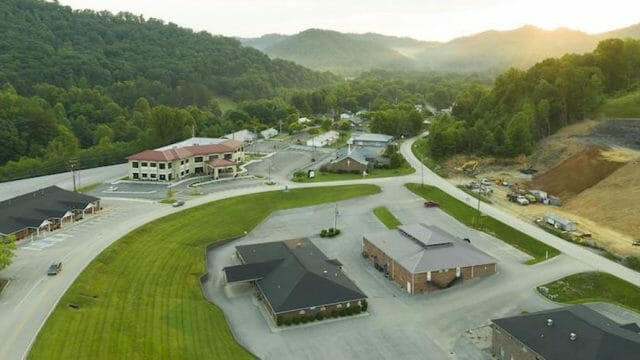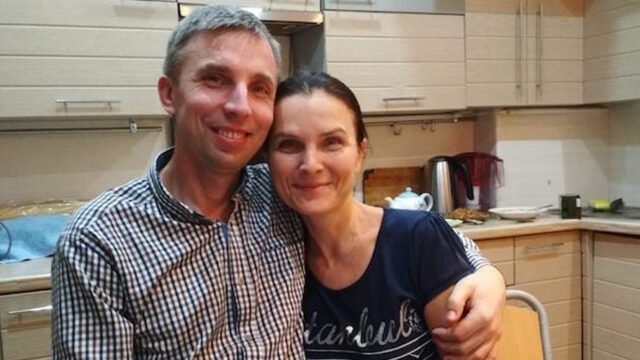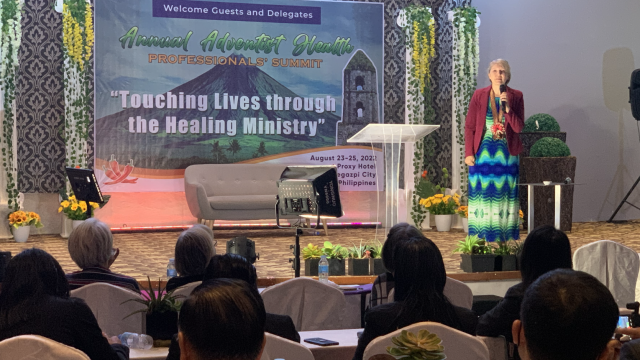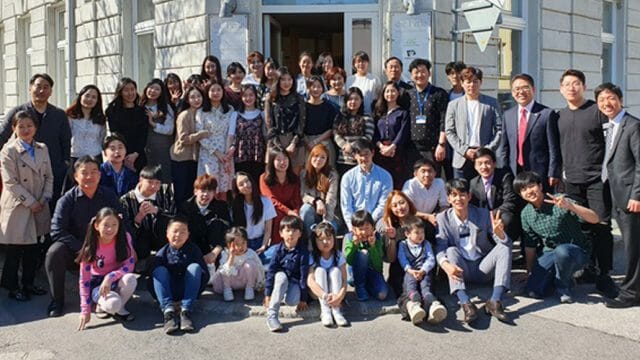Initiative is part of La Sierra University campaign to support sound decision-making.
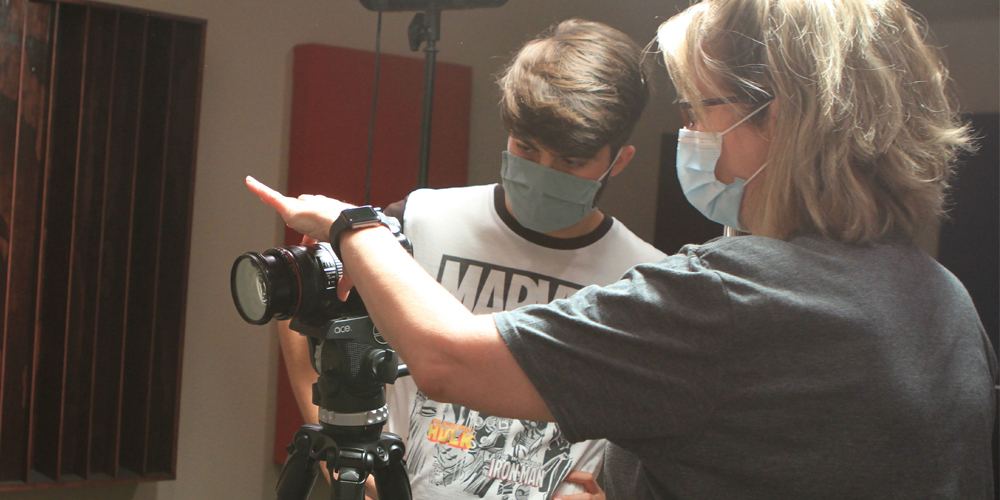
In December 2020, the newly developed COVID-19 vaccines were making news headlines and beginning a phased release to a nation decimated by the pandemic. Audrey Gaspard was concerned: would the nascent vaccines, which seemed to have been pushed out at extraordinary speed, prove a more dangerous option than the highly contagious illness itself?
Gaspard, a mother and grandmother who serves as La Sierra’s assistant director of Student Financial Services, decided to discuss her apprehensions with her daughter, a health-care revenue integrity auditor who had battled COVID-19 herself the previous spring. “My primary concern about the vaccine was, what are the side effects. After talking to my younger daughter, she told me that I am more likely to die from the virus than from the vaccine,” Gaspard said. The conversation was a turning point and gave Gaspard some peace of mind. She noted, “After listening to the facts my daughter passed along, I did not hesitate to make an appointment” to get vaccinated. She received doses of Moderna in February and March.
“I very much care about seeing this COVID-19 going away. It is a serious beast,” Gaspard added. “I have relatives and friends who have autoimmune diseases, and I want them to live and not die.”
Several weeks later, Gaspard relayed her inspirational experience as one of nine campus members who appeared in a series of seven public service announcements (PSAs), video messages offered in English and Spanish. The PSAs formed the first steps of a university educational campaign designed to answer questions and address misinformation and anxieties related to the vaccines for COVID-19, the highly contagious and potentially deadly illness that results from the SARS-Cov-2 virus. As of August 31, 639,050 people around the United States had died from COVID-19, according to the U.S. Centers for Disease Control and Prevention.
The PSAs were produced in June by La Sierra’s Film and Television Production department students in conjunction with several faculty and staff members and the university’s Office of Communication and Integrated Marketing. They were promoted through targeted email, social media, and posters. On August 4, a vaccines informational Q&A virtual town hall event was held on Zoom video conferencing with Spanish-language interpretation available. A panel of four scientists and medical science experts from La Sierra University and Loma Linda University Health discussed the functions of mRNA, which is the foundational technology in Pfizer and Moderna vaccines; the efficacy of the vaccines; and the risk of detrimental side effects. A Q&A session addressed many questions, such as how likely a vaccinated individual could spread the virus to an unvaccinated individual.
Panelists from La Sierra were professor of psychology Leslie Martin, a vaccine attitudes researcher, and associate professor of biology Arturo Diaz, a virologist. From Loma Linda University Health, participants were Jennifer Veltman, chief of the Division of Infectious Diseases, and Jacinda Abdul-Mutakabbir, assistant professor of Pharmacy Practice and critical care-infectious diseases pharmacist in the School of Pharmacy. Lourdes Morales-Gudmundsson, a professor and former chair of La Sierra’s World Languages department, provided Spanish-language interpretation.
Nearly 200 people attended the online forum, including some 70 student-athletes, coaches, and staff from the athletics department, who gathered under pandemic protocol in Troesh Conference Center of the Zapara School of Business. They were provided an opportunity after the town hall to ask questions of one of the panelists.
Since last fall, campus members allowed on campus for essential work or permitted labs, studio classes, or practices have undergone strict, two-step testing, with prescribed protocols for any who exhibit symptoms or test positive for COVID-19.
Trinity Wyscarver, member of the Golden Eagles volleyball team, said that during the town hall, she learned how the mRNA vaccines prepare the body to protect against COVID-19 and its variants. Wyscarver is a senior psychology and pre-nursing major who plans to attend Loma Linda University. She is also an emergency medical technician in Riverside County and a survivor of COVID-19. She was sick with the illness the first 17 days of January 2021, before her age category was allowed to receive the vaccine and before entering the health-care field. “I got every symptom in the book; it was so terrible,” she said. Wyscarver received the two-dose Pfizer vaccine in March, she said, and strongly recommends the treatment to others, including college students.
Wyscarver said she understands the fears circulating due to the newness of the vaccine and other issues. “But from what I’ve seen, the facts hold up. Those who are vaccinated are not ending up on the ventilator; those who are vaccinated are not getting the Delta variant as severe,” she said.
Students should understand that “it’s not a cold. It’s not the flu. It’s something very different that the world has not seen. And when you are not prepared for something, you usually don’t do well,” she said. “It’s 100 percent not worth it to let the fear override the hope.”
Filming Lessons
On a Sunday in June before finals week, seven students led by Carrie Specht, film and television production associate professor, hurried in and out of a filming studio in Palmer Hall, setting up cameras, lights, reflectors, microphones, and a staging area. They were preparing for a day of filming five campus members, including Gaspard and professors Martin and Diaz, who were scheduled throughout the day to speak in video PSAs on the COVID-19 vaccines.
Student Laura Cruz is a native of Miami, Florida, who lived in La Sierra’s dorm last year under pandemic health protocol. She said she worried about becoming sick with COVID-19 herself mainly because of the threat the illness would pose to those around her and the burden it would place on her family thousands of miles away. She described the impact on her college experience and the realizations brought by the challenges of the pandemic.
“COVID has turned college into a very sad routine. It seemed like a never-ending cycle of go to class, do some homework, eat, sleep, repeat,” she said. “The social aspect is such an important part of the college experience for both mental and spiritual health. I’ve realized how important being part of a Christian community and being able to collaborate with my peers is to me.”
Specht said the students will receive credit toward a Service-Learning class developed for the department called “Producing the PSA.” Many of the students were enrolled in her spring-quarter virtual storytelling class. “The students were able to utilize many of the skills they’ve learned as majors in the Film and TV program, such as sound recording, cinematography, lighting, editing, and production, which is the actual physical process of organizing a project and running a set,” she said.
Production student and future cinematographer Cruz will be entering her third year at La Sierra. For her, the PSAs represented an opportunity to learn teamwork. “Projects like these are a great opportunity to …. [learn] to adapt to different personalities and creative minds to work well together throughout the production process,” she said.
Of Faith, Heritage, and Tough Decisions
The university has planned additional educational outreach efforts related to the COVID-19 vaccines, including department workshops and a second virtual forum for the campus and the community. The university also joined the national White House COVID-19 College Vaccination Challenge, which provides access to informational resources and virtual meetings where ideas and best practices are exchanged.
As the pandemic began its deadly march across the nation in 2020, La Sierra University, like other organizations around the region and state, closed its campus in March in keeping with public health stay-at-home orders.
On July 27, 2021, La Sierra University joined hundreds of other colleges and universities around the country in requiring its employees and students to be fully vaccinated against COVID-19 before the start of the new school year on September 27. As with its vaccination policy for other illnesses, the university also offers applications for medical and religious exemptions to the COVID-19 vaccine requirement.
“After months of careful consideration and consultation with many experts and colleagues, including surveys of our students and faculty, the La Sierra University Emergency Management Team voted to require vaccines,” president Joy Fehr and provost April Summitt wrote in a joint statement to the campus. “This decision is yet another demonstration of our commitment as a Seventh-day Adventist university to care for our neighbors as God cares for us. The medical mission of our denomination was founded and continues to be grounded in scientific discovery and compassion for humanity.”
The original version of this story was posted by La Sierra University.



